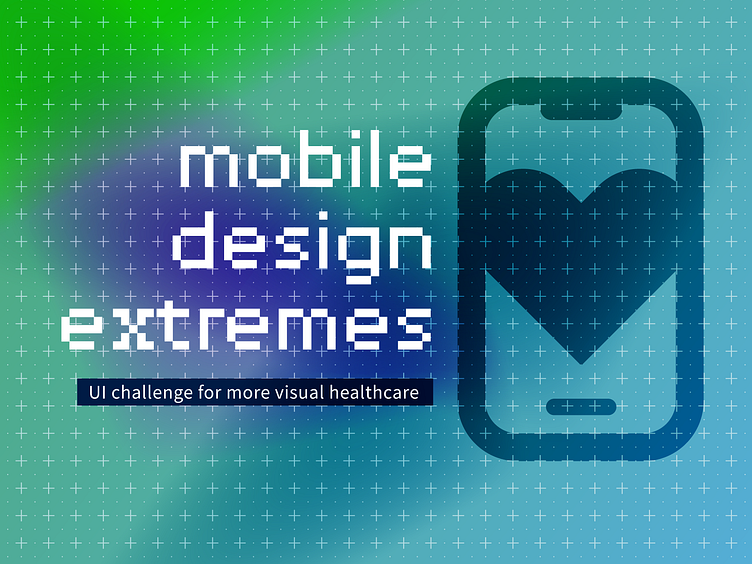UI challenge for more visual healthcare
Why we did it?
We believe exercises on UI are best when they are just hard — the harder the better! The theme was inspired by Katie McCurdy's design work, which is much needed and we hope will soon be available to many people through the Pictal Health app. I've been working in UX for about 10 years and I remember people being reluctant to use more complex processes on small screens. Time has passed and the computer is now primarily used for work. However, the smartphone has become the only computer at home and at hand.
So that’s why we wanted to do some exercises with downscaling a BIG web or A3 to just a small phone!
Why you should join & rebound
We believe that health is a key aspect for everyone. We want to contribute to the common good by choosing this kind of topic and encourage you to join!
If you are interested in wider access to medical inspiration, then check out goinvo and their insightful work on health.
We also believe that there's no point in drawing a better login page :)
And the visualization of health needs our support — not only useful, but with a bit of visual drift.
How we worked
1. We did exploratory desk research — to see what is happening in the field of health and health future for our internal programs and furthermore using it as an inspiration as well as starting point.
2. We challenged our findings and Katie’s tool with a specialist — doctor.
3. We had a brief group sprint discussion to find aims for mobile re-design/design and prioritized them.
4. We’ve chosen what to do and have assigned topics to small teams — designer/researcher or designer/business analyst — and covered the most important part of the UI with 2 teams. Not designing irrelevant things like login screens or forms to fill the data in (because there are already adequate ways of doing that or it should be mostly provided by electronic health systems that already exist on the market).
5. We performed a paper prototyping and feedback session.
6. And finally sat down alone on “the drawing board of today” — figma ;) — to prototype!
Main findings
— Doctors often perceive our health histories as rather unimportant or super-long — some symptoms matter less to them.
— Some doctors specializing in chronic diseases spend long hours reading documentation between visits.
— Visuals can assist doctors and patients in identifying patterns in data more rapidly.
Hypotheses and dark spots
There are plenty!
Health is like typography, only when it is in really poor condition, we actually tend to notice a problem.
So how can we be motivated to take care of something as invisible as health when nothing bad is happening? How can AI be a trustworthy assistance for doctors and patients?
How can we feel in control when accessing health data at a time an oversight can draw heavy consequences?
Do you feel like sharing work on one of these topics?
Rebound for detailed mutual feedback and discussion.





